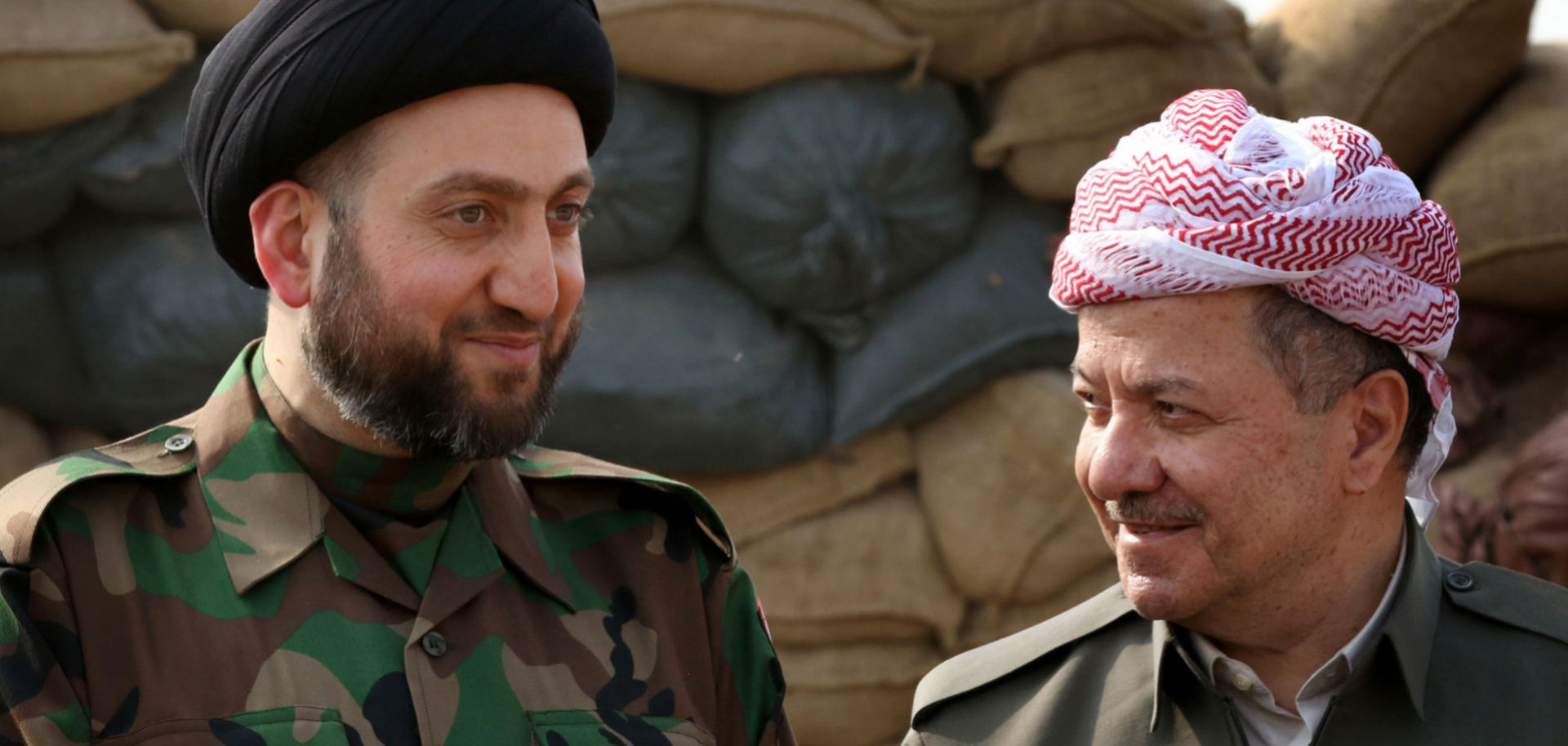ASSESSMENTS
A Historic Settlement of Iraq's Differences
Dec 15, 2016 | 09:20 GMT

(SAFIN HAMED/AFP/Getty Images)
Summary
The fight for Mosul is far from finished, but Iraqi politicians are already well into planning what will come next for their country. Though organizational and funding challenges could push Iraq's scheduled 2017 parliamentary elections off into the next year, the country's political parties have begun to assemble their blocs. The incipient coalition-building efforts have been unusually peaceable, unwittingly keeping with the loose framework that Ammar al-Hakim, head of Iraq's comprehensive Shiite coalition, the National Alliance bloc, laid out in October. Known as the "historic settlement," the plan provides a loose framework to reconcile Iraq's various religious sects and political factions once the country is rid of the Islamic State, emphasizing compromise and renouncing violence. However optimistic the historic settlement may seem, Iraq's competing parties are apparently heeding it, and they have so far limited themselves to verbal battles rather than enlisting the help of militias. Still, recent conflicts among Shiite and Kurdish political parties hint at the rivalries that will come to light as election season approaches.
Proceed to sign up
Register NowAlready have an account?
Sign In